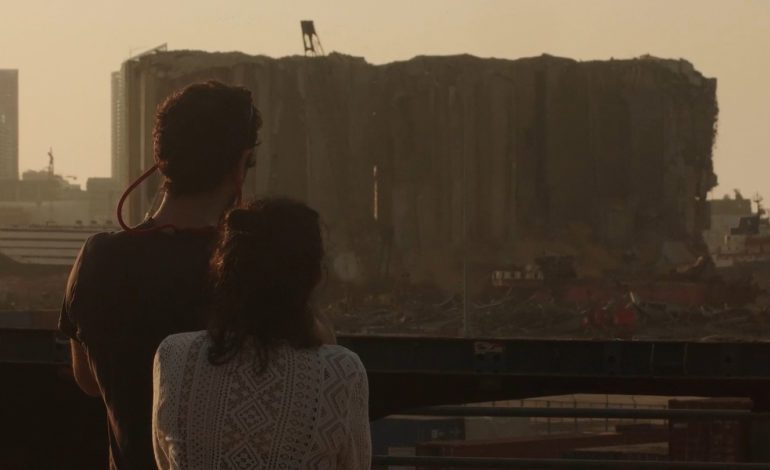

Following the premiere of Dancing on the Edge of a Volcano, Lebanese filmmaker Cyril Aris expresses his hope that the film will be presented as it was filmed with little issue. If the Lebanese political class does censor or ban it, Aris quips, “Thank you for the publicity. I will take it,”
Aris focuses his documentary on the production of another Lebanese film called Costa Brava, Lebanon, a story about a family struggling to hold onto their home after it’s threatened by a landfill development. Throughout its production, the filmmakers suffer from a variety of different issues including the 2020 explosion in Beirut, COVID pandemic, and terrible weather conditions. Initially intending on presenting multiple artists, Aris instead decided to narrow his focus to Costa Brava and their shared determination to finish their film against all the odds. Instead of creating a “making of” documentary, Aris uses the events of the film to “talk about the economic crisis” and “mismanagement of state services” after the explosion.
Both Aris and Costa Brava director Mounia Akl had gone through an existential crisis over their role as artists in the midst of an apocalypse while shooting, with the latter even debating cancellation. Both filmmakers were caught wondering if there was any purpose to their art in a dystopian environment and if they were just delusional in trying to push forward with it. “There was this skepticism,” Aris notes. “‘What are we doing?! Why are we making a film now?’ But in a way, you don’t have a choice.”
Even so, the film managed to complete its production and went on to earn much acclaim at the Venice and Toronto film festivals. While this was admirable in and of itself, Aris couldn’t help but wonder if this was all there was to their lives, especially with the political “mafia’s” actions after Beirut. One of the characters in his film muses about how people in Lebanon get used to the tragedies that occur nearly every day. “There is always this co-existence between sadness and endless hope, transmitted from generation to generation,” Aris says. Still, he believes that there must be some form of beauty that can be created from this seemingly never-ending series of tragedies. In Dancing, Akl asks her father why create and go against the current if it causes suffering, and her father responds, “I believe these tragedies can lead to something beautiful.”
